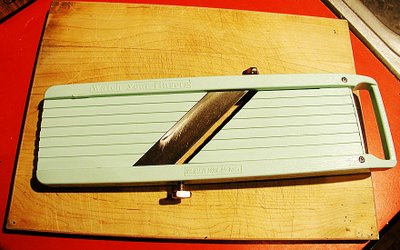Hi, I'm Jody, and I've Had Cancer
And I was feeling grateful for the fact that although we are contending with some tough stuff (like trying to climb out of the crater that used to be known as our finances), it is nothing like contending with a bad diagnosis, or yet another surgery, or regular dates with an IV bag full of poison.
And it dawned on me that recovering from cancer is like other forms of recovery—the kind that typically follow an addiction of one sort or another.
I am not comparing cancer to, say, alcoholism or drug abuse.
But I am saying that the process of recovering from cancer is just that—a process—and those going through it might well benefit from the same kind of structured programs that help recovering alcoholics or drug addicts.
In fact, I'm surprised that there hasn't been some kind of national or international movement toward such a program, especially given the popularity of blogs and Internet forums and, of course, traditional support groups, where cancer veterans share their stories and offer their own strategies for dealing with life during and after cancer.
But perhaps that's because large-scale survivorship is a relatively recent phenomenon—advances in screening and detection and treatment have turned many forms of cancer into curable or at least chronic diseases. There are now an estimated 10 million cancer survivors in the United States, and that kind of critical mass is starting to get attention.
The National Cancer Institute has an Office of Cancer Survivorship, which is co-sponsoring the fourth Biennial Cancer Survivorship Research Conference later this year. And there is a burgeoning new medical specialty that focuses on this population and its particular issues.
Still, I think there is a need for something at the grassroots level—a kind of halfway house, minus the house, for that period of re-entry that immediately follows the end of treatment. That's the time you are expected to parachute back into your life, except that the "after" version of you doesn't necessarily fit so well into the "before" picture of your life. And there are all sorts of practical things to deal with that can easily overwhelm: maintaining your health, resuming your relationships, returning to work, regaining your financial footing, and getting to know your possibly new and probably not improved body, for starters. It's like the aftershocks that follow an earthquake: they're less dangerous but can wreak more havoc because you're not prepared to deal with them.
It is just as much of a transition to go from patient to veteran as it is to go from healthy person to patient. The difference is that a cancer diagnosis automatically triggers a whole team of people to help you through it—doctors, nurses, social workers, family, and friends—whereas the end of treatment is, by definition, an anticlimax.
It's the milestone that you and your team have been gunning for. But once you reach it—no matter how spectacularly you celebrate the triumph—the assumption is that you're finished. The crisis is over. Everyone can return to their regularly scheduled programming.
And by and large, you are on your own.

